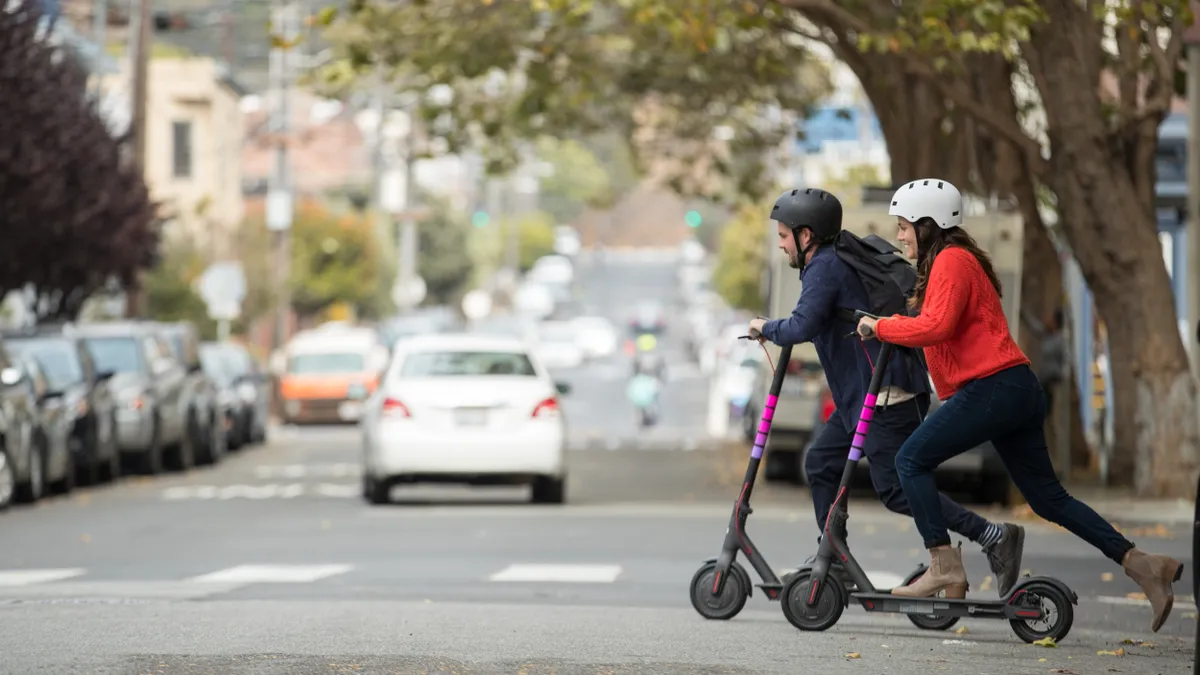Dive Brief:
- SAE International announced it will form a consortium to develop best practices and standards for storing and sharing data acquired from shared micromobility services.
- Initial partners of the consortium include Miami-Dade County, fleet operators Jump and Spin and data platform Populus. The consortium will collaborate with other mobility data bodies and plans to bring on more public agencies, fleet operators and data platforms.
- As cities seek data from shared bike and scooter networks, SAE International says its new consortium will develop a collaborative model with standardized data definitions and metrics, as well as safe storage.
Dive Insight:
The surge in micromobility options over the last two years has left cities playing catch-up in how to best measure and regulate the industry. Gathering data can be a challenge with so many companies and modes on the road, and the rapid adoption of shared micromobility caused many cities to forgo data collection requirements during the permitting process.
Wired reports that Los Angeles’ plan to gather mobility data from scooters has even come under fire from major companies like Uber and Lyft. Through its Mobility Data Specification (MDS) standard — which has been adopted by other cities including Columbus, OH and Omaha, NE — the city collects anonymized daily trip data from scooters to get a better handle on where and when people are using new mobility options. But companies and privacy advocates have balked, saying the city has not clarified how it is anonymizing and safely storing the data. Uber says it's worried MDS could be required of other transportation modes, like ride-hailing vehicles.
That's the kind of problem that SAE International's new consortium could help address, by setting standards for how cities can best collect and store data. The group has set similar standards across the transportation industry, and has been working on campaigns related to autonomous vehicle safety and education.











